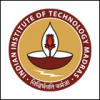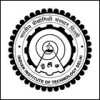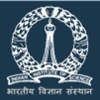How to become a Product Safety Engineer
Overview, Courses, Exam, Colleges, Pathways, Salary

Overview
Who is Product Safety Engineer ?
A product safety engineer is someone who assesses whether or not a product is safe for customers to use. They are in charge of devising and carrying out tests and experiments to assess the safety levels of these items, as well as coming up with suggestions and solutions for any safety dangers, in order to decrease safety risks. Product safety engineers also develop product use instructions and safety warnings for customers, and they take part in recalls when problems are identified.
Product safety engineers investigate products to decide if they're safe for customers to use. If safety hazards are identified, product safety engineers will come up with solutions to reduce the safety risks. They may also be called product safety consultants, product safety officers, and system safety engineers.
Typical day at work
What does Product Safety Engineer do?
Job description, Profiles, Roles and Duties:
- Mechanical, chemical, and systems engineering knowledge is essential
- Aid companies in assembling product usage guidelines and security warnings for customers
- Identify a product's potential physical or chemical hazards, and find ways to prevent them
- Advise other workers to create correct product precautionary labels
- Review plans and new machinery and equipment specifications to ensure they meet safety criteria
- Identify and correct possible hazards by buildings, machinery, and safety equipment inspections
- Assessing the efficiency of different industrial control mechanisms
- Collaborate with suppliers and customers by developing new methods and quality controls
- Open communication meets product standards defined by the customer
- Coordinate engineering activities during the development of new products including testing, characterization of results, certification and release to market
- Install safety devices on machinery or guide their installation
- Ensure that buildings or products comply with health and safety regulations, particularly which require modifications after inspection
- Evaluate and propose changes to the workplace health programs
- Maintain and apply information about existing policies, legislation, and processes in industry
- Ensure compliance of the safety laws, regulations, or standards
- Often needed to testify in legislative or legal proceedings
Abilities and Aptitude needed
What are the skills, abilities & aptitude needed to become Product Safety Engineer?
- Product safety engineers have distinct personalities. They are typically investigative people, which implies they are smart, introspective, and inquisitive. They address problems in an inquisitive, methodical, rational, analytical, and logical manner. Some are also realistic, which means they are self-sufficient, steady, persistent, sincere, practical, and economical.
- The minimum education criterion for product safety engineers is a bachelor's degree in an engineering field. Electrical engineering, mechanical engineering, chemical engineering, and aerospace engineering are also potential majors.
- Acquaintance with the rules and principles with reference to design, safety and engineering is mandatory in this job area. The requisite technology skills comprise working information of scientific software, consumer interface, computer-aided design software and query software for the database.
- Product safety engineers create prototypes that demonstrate possible issues and their solutions. They must be creative in dealing with project-specific situations and have to be able to detect risks to individuals and assets in the workplace or household before they affect material harm or develop a health peril.
- Product safety engineers need to study and understand how processes operate so that they can recognize threats to individuals and properties. They design solutions for the entire organizational operations taking into consideration procedures from other than one system at the same time. They should also think of the possible responses by individuals to the modifications that they are recommending.
- Product safety engineers should deduce federal and state guidelines and their intent so as to be able to propose suitable designs for particular work environments.
Salary
Salary for Product Safety Engineer?
Salary for Product Safety Engineer is as follows :
- Minimum Monthly Salary: For entry-level Prosthodontists or those with limited experience, the monthly salary might range from INR 80,000 to INR 1,50,000 or more.
- Maximum Monthly Salary: Highly experienced and skilled Prosthodontists, especially those with advanced training, private practice, or working in reputable dental clinics, may earn a monthly salary ranging from INR 2,50,000 to INR 5,00,000 or more.
- Annual Salary: The annual salary for entry-level Prosthodontists could be approximately INR 9.6 lakhs to INR 18 lakhs per year. Experienced and well-qualified Prosthodontists may earn a maximum yearly salary ranging from INR 30 lakhs to INR 60 lakhs or more.
- Highest-Paying Jobs and Scope: The highest-paying jobs for Prosthodontists are typically found in specialized dental clinics, private practices, and renowned dental hospitals. Prosthodontists who have completed advanced education, possess exceptional clinical skills and have a successful track record in providing prosthodontic treatments can command higher salaries and may have opportunities for career growth as specialists or consultants. As dental care and aesthetics gain importance, the demand for qualified Prosthodontists remains significant. These dental specialists focus on restoring and enhancing patients' oral function and appearance through prosthetic dental treatments such as crowns, bridges, dentures, and dental implants. With the increasing emphasis on oral health and cosmetic dentistry, there is a growing need for skilled Prosthodontists who can contribute to the field through clinical excellence and research advancements. As the dental industry evolves, Prosthodontists with expertise in digital dentistry, implantology, and cosmetic procedures will likely have excellent career prospects in the dental healthcare sector.
Pathways
How to become an Product Safety Engineer?
Entrance Exam
Entrance Exam for Product Safety Engineer ?
Courses
Which course I can pursue?
Best Colleges
Which are the best colleges to attend to become an Product Safety Engineer?
Industries
Which Industries are open for Product Safety Engineer?
Product Safety Engineers can find employment opportunities in various industries with a strong emphasis on ensuring product safety, compliance with regulations, and risk management. Here are some industries that commonly employ Product Safety Engineers:
- Consumer Electronics: Companies producing smartphones, laptops, home appliances, and other electronic devices require Product Safety Engineers to ensure their products meet safety standards.
- Automotive Industry: Automobile manufacturers and suppliers hire Product Safety Engineers to assess vehicles' safety features and performance.
- Medical Devices: The medical device industry relies on Product Safety Engineers to ensure the safety and compliance of medical equipment and devices.
- Pharmaceuticals: Pharmaceutical companies employ Product Safety Engineers to assess the safety of drug products and medical treatments.
- Aerospace and Defense: Aerospace and defence industries hire Product Safety Engineers to conduct safety analysis for aircraft, spacecraft, and military equipment.
- Consumer Goods: Manufacturers of various consumer products, such as toys, furniture, and household items, need Product Safety Engineers to ensure compliance with safety standards.
- Industrial Equipment: Companies producing industrial machinery and equipment employ Product Safety Engineers to assess the safety of their products used in industrial settings.
- Textile and Apparel: The fashion industry hires Product Safety Engineers to evaluate the safety and quality of textiles, clothing, and footwear.
- Energy and Power Generation: Energy companies may require Product Safety Engineers to ensure the safety of power generation equipment and infrastructure.
- Chemical and Process Industries: Companies in chemical manufacturing and other process industries need Product Safety Engineers to assess the safety aspects of their products and processes.
- Technology and Software: Tech companies may employ Product Safety Engineers to assess the safety of software applications, cybersecurity measures, and Internet of Things (IoT) devices.
- Environmental Health and Safety (EHS) Consulting: EHS consulting firms often hire Product Safety Engineers to provide expertise in assessing product safety and compliance for multiple clients across various industries.
internship
Are there internships available for Product Safety Engineer?
Internships for Product Safety Engineers are commonly available in industries prioritising product safety, compliance, and risk management. Product Safety Engineers are critical in ensuring that products meet safety standards, regulations, and quality requirements to protect consumers and users from potential hazards. Here are some industries where internships for Product Safety Engineers can be found:
- Consumer Electronics: Companies manufacturing electronic devices, home appliances, and gadgets offer internships for Product Safety Engineers to assess product safety, conduct risk assessments, and ensure compliance with safety standards.
- Automotive Industry: Automotive manufacturers and suppliers may have internships for Product Safety Engineers to evaluate vehicles' safety features and performance.
- Medical Devices: Companies producing medical equipment and devices may offer internships to assist in safety testing, quality assurance, and regulatory compliance.
- Pharmaceuticals: Pharmaceutical companies may provide internships for Product Safety Engineers to assess the safety of drug products and medical treatments.
- Aerospace and Defense: Internship opportunities might be available in aerospace and defence companies, where Product Safety Engineers contribute to the safety analysis of aircraft, spacecraft, and military equipment.
- Consumer Goods: Manufacturers of various consumer products, such as toys, furniture, and household items, may offer internships for Product Safety Engineers to ensure compliance with safety standards.
- Industrial Equipment: Companies producing industrial machinery and equipment may provide internships to assess the safety of their products in industrial settings.
- Textile and Apparel: The fashion industry might offer internships for Product Safety Engineers to evaluate the safety and quality of textiles, clothing, and footwear.
Career outlook
What does the future look like for Product Safety Engineer?
The future for Product Safety Engineers appears promising as the importance of product safety and regulatory compliance continues to grow across various industries. With increasing consumer awareness and stringent safety regulations, companies prioritise their products' safety more than ever. Product Safety Engineers will ensure that products meet safety standards, undergo rigorous testing, and adhere to relevant regulations.
As new technologies emerge and product complexity increases, Product Safety Engineers must adapt their skills to address novel safety challenges. It could involve evaluating the safety implications of artificial intelligence, internet of Things (IoT) devices, and autonomous technologies.
Moreover, as global markets become more interconnected, international safety standards and harmonisation will gain significance, leading to a demand for Product Safety Engineers well-versed in global regulations.
The career outlook for Product Safety Engineers is expected to be positive, with opportunities in industries such as consumer electronics, automotive, pharmaceuticals, medical devices, and aerospace. Companies will seek skilled professionals who can ensure product safety, maintain compliance, and protect their brand reputation.







